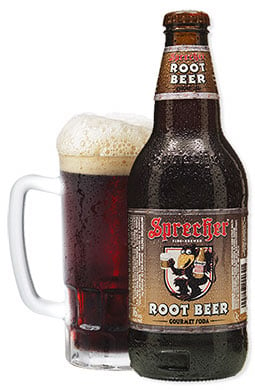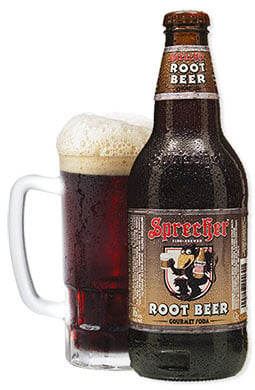The history of root beer is centuries old. It became popular during the prohibition era of 1919 (hence August Schell’s Brewing 1919 Root Beer) to 1933. The soda has always had its place in the marketplace, but now there’s something new on the market that pays homage to the classic carbonated beverage, and that’s hard root beer.
What is Hard Root Beer?
Made like beer but tasting like root beer, hard root beer is a flavored beer that contains alcohol. The question on everyone’s mind is: is hard root beer actually beer? Yes. And, no. Hard root beer belongs to a secondary classification of beer, not one brewed with traditional grains like wheat and barley, but with actual plant roots just as the traditional soda is. Typical spices, herbs, and roots used in hard root beer include:
- Cinnamon
- Wintergreen
- Anise or licorice
- Vanilla
- Sarsaparilla or birch bark
The flavor is built from the ground up like a root beer - there's really no traditional hops or malt to speak of - and they taste almost entirely like their soda inspiration. Sugar, yeast, and water are then added to the brew. The alcoholic version of root beer then undergoes a secondary fermentation with additional sugars and ale yeast, which is filtered to develop the root beer base. Most hard root beer has an ABV (alcohol by volume) of 5 – 6%. In comparison, Miller Lite has an ABV of 4.17%.
 Why the Increasing Popularity and Trend
Why the Increasing Popularity and Trend
The current hard root beer spike in popularity is a direct reference to the beer industry’s effort to appeal to adults under age 35, many of whom prefer sweeter beers. While craft beer continues its trajectory, there’s still an entire segment of drink options in the beer aisle that are pitched to non-beer drinkers, like malt beverages and now, hard sodas. Eugene Kashper, CEO of Pabst Brewing Company said, “Younger people are looking for something lighter and sweeter. The beer segment long-term doesn’t seem like it will be dominated by traditional, hoppy beers.”
Hard root beer is coming off quite the summer, and it earned the “niche beverage of summer,” and according to Sprecher Brewing Company president Jeff Hamilton, it's a drink for people who don't want to drink beer or taste the alcohol they're consuming. "It's a niche-y product," he adds, noting that root beer, whether alcoholic or not, has always been a polarizing flavor. "People either love it or hate it."
The Brewers Behind Hard Root Beer
Milwaukee-based Sprecher began distributing its version Fire Brewed Hard Root Beer in 2013, and the ale is aged in oak bourbon barrels, which give it a deeper, richer flavor more associated with alcohol. Bernick’s distributes Sprecher products including its Fire Brewed Hard Root Beer. It packs the punch of a beer, but smells and tastes like old-time root beer, playing on nostalgia. It’s taking something from childhood and making it better.
Other labels with root beer on the brain is Coney Island Brewing Company which is a subsidiary of Boston Brewing Company under which the Sam Adams label lives. And perhaps hard root beer is just the tip of the “alco-pop” iceberg. MillerCoors announced its line of hard soda with Henry’s Hard Ginger and Hard Orange beverages, sidestepping hard root beer for now. The horizon, however, looks sweet for those favoring the current trend.



